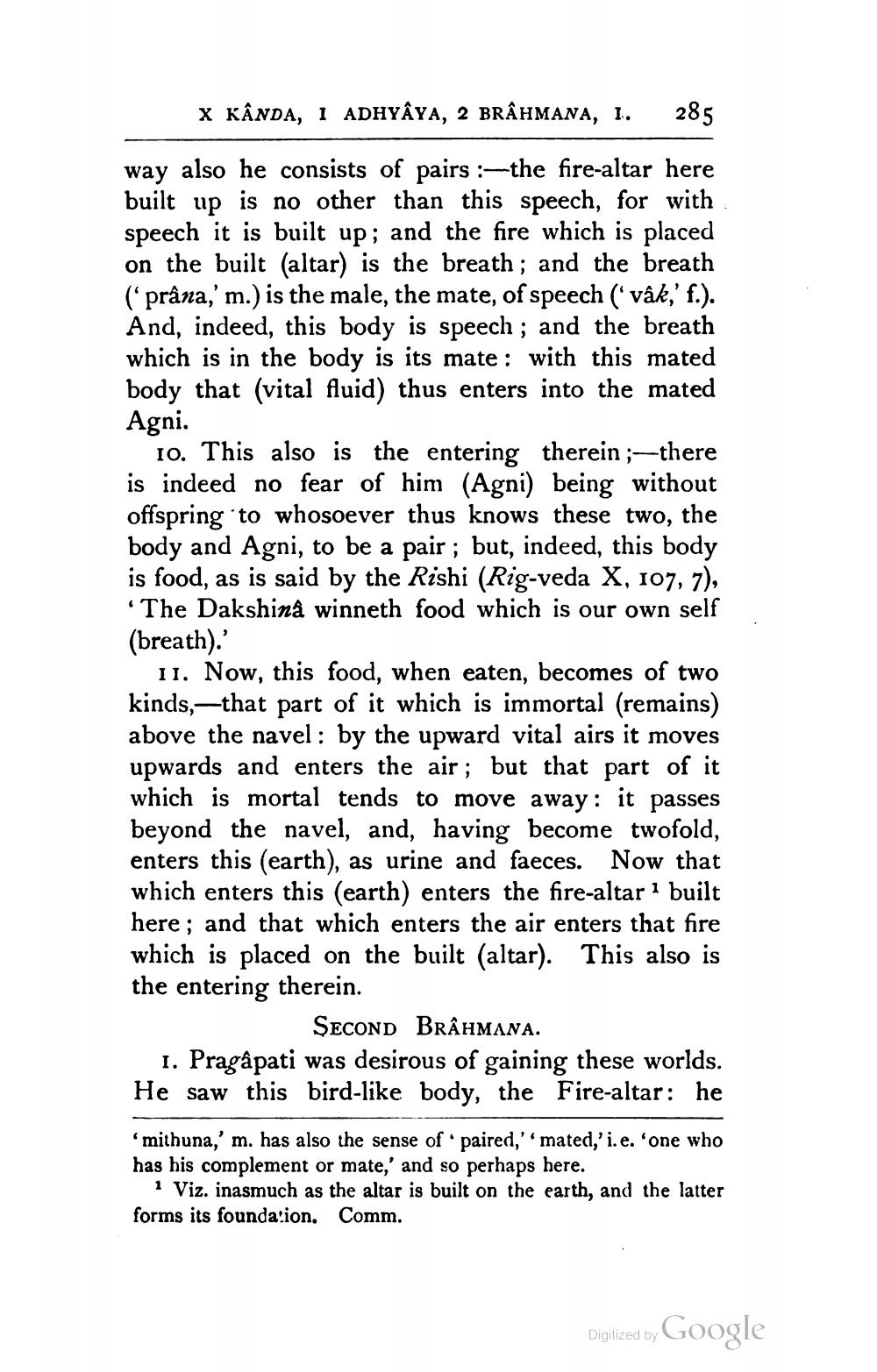________________
X KÂNDA, I ADHYAYA, 2 BRÂHMANA, 1.
285
way also he consists of pairs :-the fire-altar here built up is no other than this speech, for with speech it is built up; and the fire which is placed on the built (altar) is the breath; and the breath (prâna,' m.) is the male, the mate, of speech ('vâk,' f.). And, indeed, this body is speech ; and the breath which is in the body is its mate : with this mated body that (vital Auid) thus enters into the mated Agni.
10. This also is the entering therein ;—there is indeed no fear of him (Agni) being without offspring to whosoever thus knows these two, the body and Agni, to be a pair ; but, indeed, this body is food, as is said by the Rishi (Rig-veda X, 107, 7), *The Dakshina winneth food which is our own self (breath).'
11. Now, this food, when eaten, becomes of two kinds,—that part of it which is immortal (remains) above the navel : by the upward vital airs it moves upwards and enters the air; but that part of it which is mortal tends to move away: it passes beyond the navel, and, having become twofold, enters this (earth), as urine and faeces. Now that which enters this (earth) enters the fire-altar 1 built here; and that which enters the air enters that fire which is placed on the built (altar). This also is the entering therein.
SECOND BRÂHMANA. 1. Pragâpati was desirous of gaining these worlds. He saw this bird-like body, the Fire-altar: he
mithuna,' m. has also the sense of paired,''mated,' i.e. 'one who has his complement or mate,' and so perhaps here.
1 Viz. inasmuch as the altar is built on the earth, and the latter forms its foundation. Comm.
Digitized by Google




